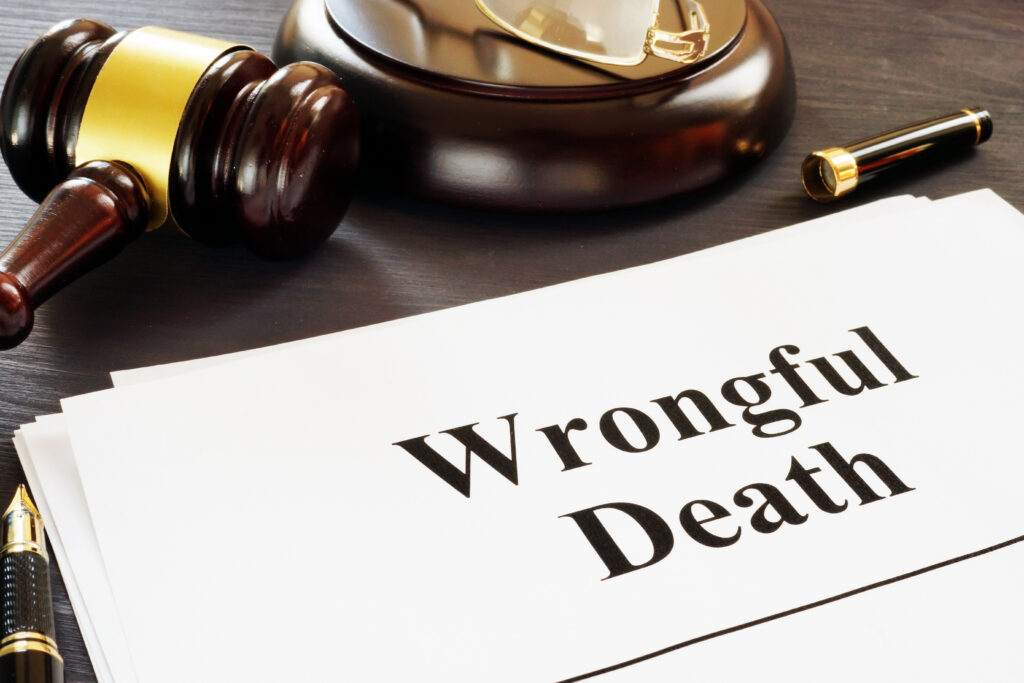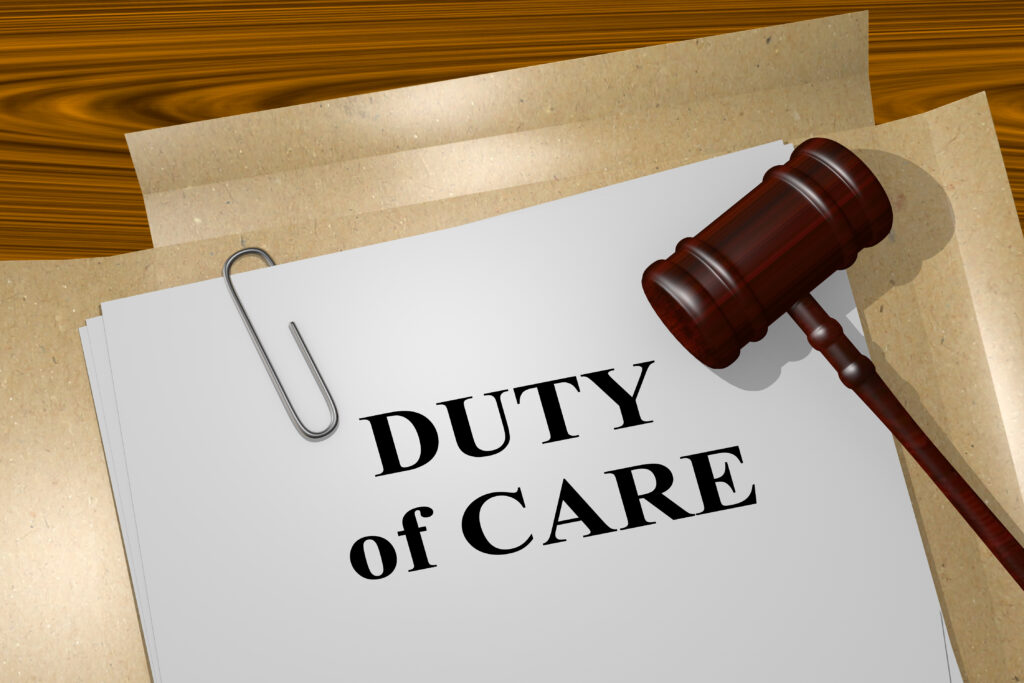
Losing a close family member is hard, especially due to someone's carelessness. In such cases, family members can seek justice and compensation through a wrongful death lawsuit. But who can file this lawsuit?
The best way to get answers to all your questions is to consult directly with a wrongful death lawyer near you for free.
What is a Wrongful Death Lawsuit?
Before we dive into who can file a wrongful death lawsuit, it's important to understand what this type of legal action entails. A wrongful death lawsuit is a civil claim that seeks financial compensation for the death of a person caused by another party's negligence, recklessness, or intentional actions.
This can include a wide range of situations, such as:
- Car accidents caused by drunk or distracted driving
- Medical malpractice resulting in a patient's death
- Workplace accidents due to unsafe conditions or lack of proper training
- Defective products that cause fatal injuries
- Criminal acts like assault or murder
The purpose of a wrongful death lawsuit is to hold the responsible party accountable and to provide compensation for the surviving family members' losses, such as funeral expenses, lost income, and emotional distress.
Who is Eligible to File a Wrongful Death Lawsuit?
In most states, the right to file a wrongful death lawsuit is limited to certain family members or representatives of the deceased person's estate. The specific rules vary by state, but generally, the following individuals may be eligible to bring a wrongful death claim:
Surviving Spouse
The deceased person's husband or wife is typically the first in line to file a wrongful death lawsuit. They may seek compensation for loss of companionship, financial support, and other damages related to their spouse's death.
Children
If the deceased person was a parent, their children can file a wrongful death claim. This includes biological and adopted children and, in some cases, stepchildren. Minor children may need a guardian ad litem appointed by the court to represent their interests in the lawsuit.
Parents
When the deceased is a child or unmarried adult, their parents may have the right to file a wrongful death lawsuit. This can include biological parents, adoptive parents, and sometimes legal guardians.
Other Family Members
In certain circumstances, other family members can bring a wrongful death claim if they are financially dependent on the deceased person. This can include siblings, grandparents, or other relatives.
Personal Representative
If the deceased person had a will or estate plan, they may have named a personal representative or executor to handle their affairs after death. This individual can file a wrongful death lawsuit on behalf of the estate and any beneficiaries.
Remember to note that even if you fall into one of these categories, you may not automatically have the right to file a wrongful death lawsuit. Some states have specific requirements or limitations on who can bring a claim. For example:
- In some states, only the personal representative of the deceased person's estate can file a wrongful death lawsuit, even if there are surviving family members.
- Other states may prioritize certain family members over others. For instance, if there is a surviving spouse and children, the spouse may have the sole right to file a claim.
- Some states have statutes of limitations, or time limits, on filing a wrongful death lawsuit. If you wait too long to take legal action, you may lose your right to seek compensation.
Proving a Wrongful Death Claim
Filing a wrongful death lawsuit is just the first step in seeking justice for your loved one. To succeed in your claim, you will need to prove several key elements:

Duty of Care
First, you must show that the defendant (the person or entity you are suing) had a legal duty to exercise reasonable care to avoid harming others. This duty can arise in many contexts. For example, a doctor must provide good care. And a driver must follow traffic laws.
Breach of Duty
Next, you must prove the defendant failed their duty of care and that they did this by being negligent, reckless, or intentional. This shows they didn't act like a reasonable person in the same situation. Also, their actions endangered others.
Causation
You must also prove that the defendant's breach of duty directly caused your loved one's death. This can be challenging in some cases, especially if there were multiple contributing factors or a significant amount of time passed between the negligent act and the death.
Damages
Finally, you must show that you and other surviving family members suffered losses due to your loved one's death. These include medical expenses, funeral costs, lost income, pain and suffering, and loss of consortium.
Proving these elements often requires extensive evidence, including medical records, accident reports, witness testimony, and professional opinions. An experienced wrongful death attorney can gather the necessary evidence and construct a strong case.
Compensation in a Wrongful Death Lawsuit
If you prevail in a wrongful death lawsuit, you may be entitled to different types of compensation for your losses, including:
Medical Expenses
When a loved one suffers a fatal injury or illness, they often require extensive medical treatment before their passing. This can include emergency room visits, hospital stays, surgeries, medications, and other costly interventions. In a wrongful death lawsuit, you can seek compensation for these medical expenses, which can quickly add up to tens or even hundreds of thousands of dollars.
It's important to keep detailed records of all medical bills and expenses related to your loved one's final illness or injury, as these will be crucial evidence in your wrongful death claim. Your attorney can gather and organize this documentation to ensure you receive full compensation for these costs.
Funeral and Burial Costs
In addition to medical expenses, the unexpected loss of a loved one often leaves family members with significant funeral and burial costs.
These can include expenses such as:
- Funeral home services
- Casket or urn
- Cemetery plot or cremation fees
- Headstone or grave marker
- Obituaries and death certificates
- Memorial services and receptions
These costs can easily exceed $10,000 or more, adding a significant financial burden to a difficult time. In a wrongful death lawsuit, you can recover compensation for these expenses, helping to alleviate some of the financial stress and allowing you to focus on grieving and healing.
Lost Income and Benefits
When a loved one dies, their family members often lose more than just their presence and companionship. In many cases, the deceased person was also a primary breadwinner or contributor to the household income. This can leave surviving family members struggling to make ends meet and maintain their standard of living.
In a wrongful death lawsuit, you can seek compensation for the lost income and benefits your loved one might have earned if they had lived.
This can include:
- Salary and income
- Bonuses and commissions
- Retirement benefits and pensions
- Health insurance and other employer-provided benefits
- Future earning potential and career advancement
Calculating the value of lost income and benefits can be complicated, as it requires projecting your loved one's earning potential over their expected lifetime. Economic analysts and actuaries may be needed to provide detailed analysis and testimony to support your claim.
Pain and Suffering
When a person suffers a fatal injury or illness, they often endure significant pain and suffering before their passing. This can include physical pain, emotional distress, fear, anxiety, and other forms of anguish. While no amount of money can truly compensate for this suffering, a wrongful death lawsuit may allow you to seek damages for your loved one's pain and suffering.
Proving pain and suffering can be challenging, as it is a subjective experience that is difficult to quantify. However, medical records, witness testimony, and other evidence can help demonstrate the extent of your loved one's suffering and support your claim for damages.
Loss of Companionship, Guidance, and Support
The loss of a loved one is about more than just financial losses. It also involves the loss of the intangible benefits that a person provides, such as companionship, guidance, and emotional support. These losses can be especially profound for spouses, children, and close family members.
In a wrongful death lawsuit, you may seek compensation for the loss of these intangible benefits, often called "loss of consortium" damages.
These can include:
- Loss of love, affection, and companionship for a spouse
- Loss of parental guidance, nurturing, and support for children
- Loss of care, assistance, and protection for dependent family members
While it can be difficult to quantify these losses, they are very real and can profoundly impact surviving family members' lives. A wrongful death attorney can help you demonstrate their significance and seek fair compensation.
Punitive Damages
In some cases, the actions or inactions that led to your loved one's death may be particularly egregious, reckless, or intentional. You can seek punitive and compensatory damages for your losses in these situations.
Punitive damages aim to punish the wrongdoer and deter similar misconduct in the future. They are typically only awarded in cases where the defendant's behavior was especially reprehensible, such as:
- Drunk driving accidents
- Intentional violence or abuse
- Knowingly selling defective or dangerous products
- Flagrant violations of safety regulations
Punitive damages can significantly increase the compensation awarded in a wrongful death lawsuit. However, they are not available in all cases, and some states place caps or limits on the amount of punitive damages that courts can grant.
Should You File a Wrongful Death Lawsuit?
Deciding whether to file a wrongful death lawsuit is a highly personal decision that depends on many factors, including the strength of your case, the financial impact of your loved one's death, and your emotional readiness to pursue legal action.
There is no one-size-fits-all answer, but here are some important considerations to keep in mind:
Time Limits

As mentioned earlier, wrongful death lawsuits are subject to strict time limits. If you wait too long to file a claim, you may lose your right to seek compensation. It's important to consult with an attorney as soon as possible to understand your legal options and deadlines.
Emotional Toll
Pursuing a wrongful death lawsuit can be emotionally draining, as it may require you to relive painful memories and confront the person or entity responsible for your loved one's death. Having a strong support system and prioritizing your mental health is important.
Potential Outcomes
While a successful wrongful death lawsuit can provide a sense of justice and financial relief, it's important to have realistic expectations about the potential outcomes. Even if you win your case, no amount of money can truly compensate for the loss of a loved one. However, holding the responsible party accountable can bring closure and help prevent similar tragedies from happening to others.
Seeking Help from a Wrongful Death Attorney
If you believe you have a valid wrongful death claim, it's best to seek help from an experienced attorney specializing in this law area. A skilled wrongful death lawyer can:
- Evaluate the strength of your case and advise you on your legal options
- Gather evidence and build a compelling case on your behalf
- Negotiate with insurance companies and other parties to seek a fair settlement
- Represent you in court if your case goes to trial
- Provide guidance and support throughout the legal process
When choosing a wrongful death attorney, look for someone with a track record of success in handling similar cases, strong communication skills, and a compassionate approach to client service. Many attorneys offer free initial consultations, so don't hesitate to discuss your case with multiple lawyers before deciding.
Contact a Wrongful Death Lawyer
Losing one of your closest family members can be an insufferable loss, and the pain can be even greater when someone else's negligence causes their death. While no legal action can bring back your loved one, filing a wrongful death lawsuit can support you in seeking justice, holding the responsible party accountable, and obtaining compensation for your losses.
If you believe you may have a wrongful death claim, don't wait to take action. Contact a skilled and compassionate wrongful death attorney today to learn more about your rights and options. With the right legal guidance and support, you can honor your loved one's memory and work towards a brighter future for yourself and your family.